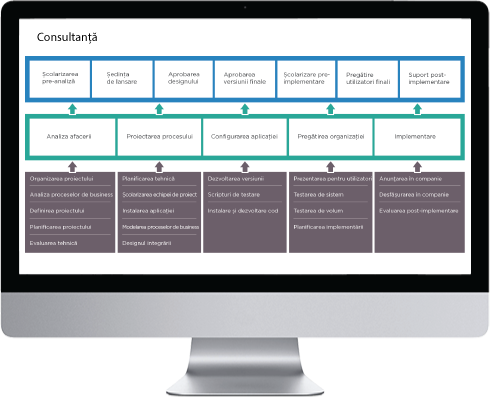-
The ERP solution uses a common database that supports several functionalities used by the various departments of the company. With an ERP solution, the company has access to accurate information that allows optimal decision making faster. It also automates certain processes and eliminates redundant activities, dramatically reducing costs and possible risks and errors.
The ERP solution intervenes in:
● Data collection, processing and centralization
● Resource planning, organization and monitoring of work processes
● Management of sales, supply, production, maintenance, etc.
● Management of financial operations
● Generation of accounting and financial documents and reports
● Generating reports and analyzes for the various departments in the company
-

What are the main benefits of using an ERP?
● Increasing working speed
● Increase productivity
● Traceability of operations
● Data accuracy
● Reducing data processing time
● Reduce order processing and delivery time
● Decreased costs
● Automation of manual activities
● Transparency of information (products / stocks / prices / customers / suppliers, etc.)
● Improving relationships with customers, partners and suppliers
● Decreasing the number of human errors
● Improving cash flow
● Full visibility and improved control over the business
● Improving the decision-making process and increasing the company's profitability
-
We have ERP software solutions in our portfolio for integrated management of business processes and applications, developed for any industry.
With SocrateERP, you integrate and automate all processes in the company, with a modern and flexible ERP software solution.
With Entersoft Business Suite ERP, you automate and accelerate company operations, streamline processes, optimize costs and make informed decisions in a timely manner and with maximum efficiency.
